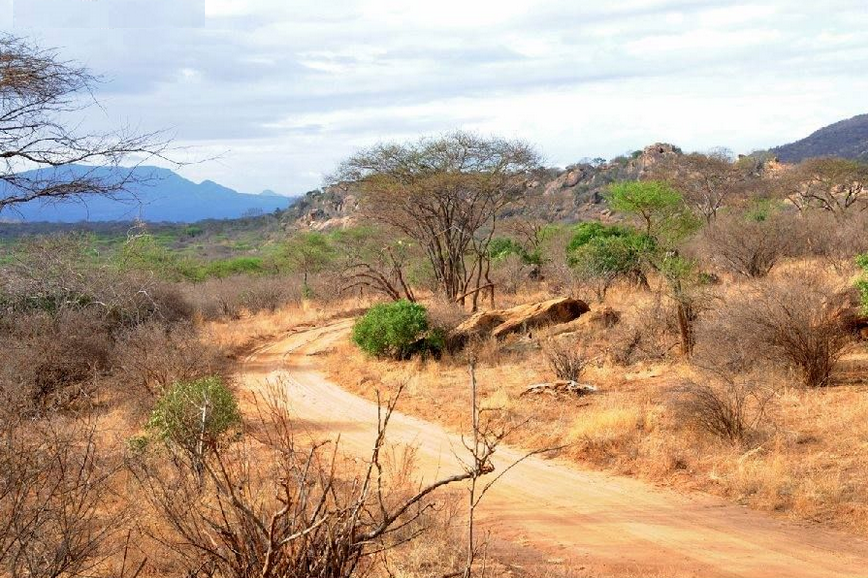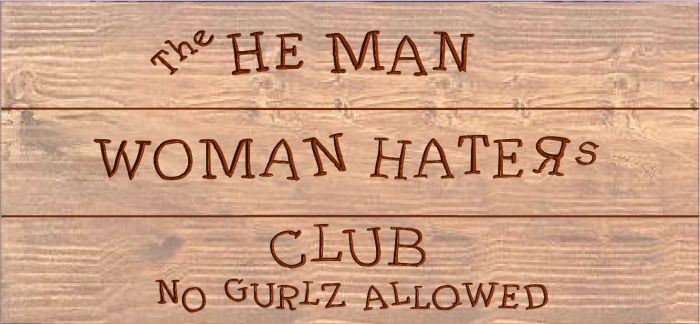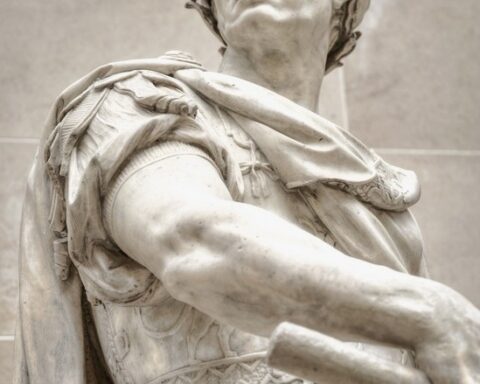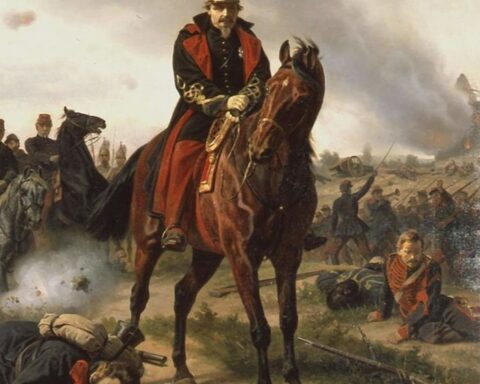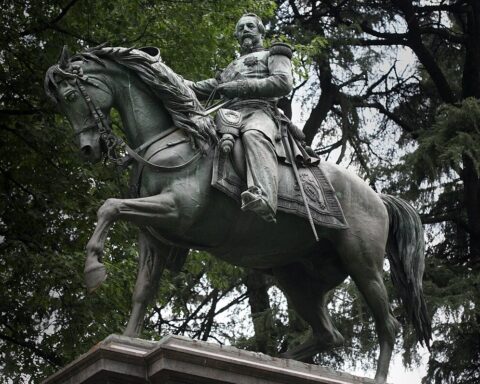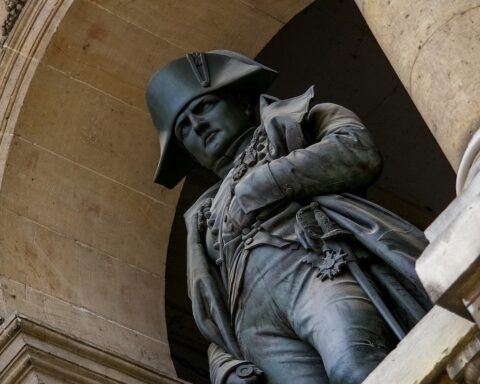Editor’s Note: The following comprises the thirteenth chapter of Sunshine and Storm in Rhodesia, by Frederick Courteney Selous (published 1896). All spelling in the original.
CHAPTER XIII
Captain Grey and his men reached Tekwe store about 2 P.M. on Friday, 27th March, and were only just in time to save the beleaguered whites there; for shortly before their arrival a party of Kafirs had driven off all Mr. Stewart’s cattle, and killed a horse belonging to him. At the same time they had been kind enough to send him a message by the boy who had been looking after his cattle, to the effect that they meant to return and kill all the white people that night. However, they made no attack when they found that Mr. Stewart’s small party had been reinforced by some twenty well-armed men.
On the following day Colonel Napier’s column, which had left Bulawayo on the previous Tuesday, and had been patrolling the country in the direction of the Insiza river, came across country to the Tekwe store. Besides saving the lives of Mr. Stewart and his party, the presence of Colonel Napier and Captain Grey with the men under their command on the Salisbury road at this juncture was the means of saving the lives of nine other white men and two coloured boys, the latter being the drivers, whilst the former were the guard, sent down with the last mail coach from Gwelo.
This coach left Gwelo on Saturday, 28th March, arriving at the Tchangani early the following morning. Here they found the body of a white man, just murdered and stripped stark naked, lying in the middle of the road in front of the store. This was the body of a prospector named Wood in the employ of Willoughby’s Consolidated Company, who had come across country from the Selukwe district. Unfortunately he arrived at the Tchangani store on the day after it had been evacuated by the white men who had been in laager there, and he probably found it in possession of the Kafirs, who of course murdered him.
On seeing this ghastly sign of the times, the men in charge of the coach determined to drive on at once without outspanning, and soon observed Kafirs running in the bush and keeping pace with the coach on both sides of the road. These natives, however, seemed to have no guns, and by continually firing at them the white men kept them from coming to close quarters. After a time the Pongo store was reached, but no halt was possible owing to the threatening attitude of the Kafirs. The mules were now almost done up, and could only get the coach along at a walk, but still the Kafirs hung on either flank, as thirsty for blood as a pack of wild dogs awaiting the moment to rush in upon a wounded buffalo.
Some three miles farther on the poor mules came to a standstill, and the white men were forced to leave the coach, and keep on on foot along the road, the Kafirs ever keeping pace with them in the bush on either side, and doubtless only waiting for the darkness of night to enable them to rush in and kill them with as little loss to themselves as possible. But just at dusk they reached Colonel Napier’s column in a very exhausted condition.
Some six weeks later, when we found the bodies of the men who had been murdered at the Pongo store, we also found some three miles on this side of the store the coach which had been captured by the Kafirs. A linch-pin had been removed, and one of the wheels taken off. The pole had also been sawn in two, and all the mail bags cut open, their contents being scattered all over the ground. The poor mules had all been stabbed to death with assegais, and lay in a heap together, still in their harness.
Altogether the combined patrols under Colonel Napier and Captain Grey collected and brought back with them to Bulawayo forty-three persons, including two women and a child, many, if not all of whom, had they not been thus timely rescued, would have fallen victims to the Kafirs. The names of the poor fellows murdered at the Pongo store are Frederick Hurlstone, J. Beddington, and H. Zeeburg. At midnight on the Saturday before my return to Bulawayo from the Matopo Hills, Captain Pittendrigh of the Africander Corps had left town with a small party only eleven strong, in order first of all to reinforce for the night a small party at Jenkins’ store, and then push on some thirty miles farther, in order to relieve Mr. Graham, the native commissioner at Inyati, who with Sub-inspector Hanley and five other white men was believed to be in laager there. There were many volunteers for this expedition, but as the Government was unable to furnish them with horses or rifles, only those could go who were in a position to equip themselves.
Jenkins’ store was reached at half-past two on Sunday morning. Here ten men were found in laager, including a younger brother of Mr. Graham the native commissioner. He, with an assistant native commissioner, Mr. Carter, a cart and four mules and two spare horses, had been on his way to Inyati to bring his brother, who was suffering from an attack of fever, into Bulawayo. As an attack had been expected on the store that night, the thatch had been removed from the roof, and a rough fence put up round the building. However, no attack was made, and at 5 A.M. the whole party, now consisting of nineteen men, with the two spare horses and the cart and mules driven by two colonial boys, set out for the Bembisi, twenty-three miles distant.
For the subsequent experiences of this small rescue party, I am indebted to the kindness of Mr. Moodie Thomson, the able editor of the Matabele Times, who accompanied Captain Pittendrigh and wrote an account of the expedition. This he has kindly placed at my disposal, and I will take up his narrative at the point when the start was made from Jenkins’ store early on Sunday morning. It proceeds as follows:—
“We were now in a very different country from the open veld of the earlier ride. Kopjes were close on either hand, the road was of the roughest, and progress with the mule cart consequently slow. The word was constantly given for a good look-out on either hand, but for over an hour not a man or a woman was seen, though tracks crossing the path were met with at frequent intervals. The kopjes in which we had expected to have trouble were passed, and the more open undulating ground at the Elibaini Hills reached. Progress was slow along this portion of the ascending road, and near the highest point skirting the base of the most prominent hill a strip of bush was entered. No sooner had we made our way into this cover than a shot was heard from the hill-slope. In a second it was seen to be occupied by half a dozen or so natives, who sent in another and another shot. It was impossible to make a sufficient reply from our position, and a dash was made from the road through the strip of bush to the open slope of the hill. One or more of the natives was shot as they retreated over the crest, and a hot pursuit was made.
“When those of our party who were foremost reached the top of the hill they found that affairs had assumed a different aspect from repulsing a handful of stray rebels. A glance was sufficient. The natives were there in a dense mass, throwing out skirmishers on either flank to surround us, one body proceeding rapidly around the lower slope to cut us off. Our advance men fell back, and the natives began to show themselves in the open. Firing became hot on both sides, but taking advantage of the strip of bush we were able at first to inflict considerable damage. The natives to the number of about three hundred were soon in the bush also, advancing in excellent open order and becoming formidable. Several rushed in to close quarters, and Captain Pittendrigh, who had dismounted, lost his horse. Before he could get one of the spare horses, a native armed with an assegai grappled him, and a hand-to-hand struggle took place. The native, however, was thrown off and shot, and the captain escaped with some slits in his coat. At the same moment Thomas Haden, who had been fighting most determinedly in the front, received a shot on the upper part of his bandoleer, which exploded three of his cartridges, one bullet passing through his shoulder and with a ricochet entering his neck and passing through his cheek. Immediately after Mr. S. Carter received a bullet through his ankle. The natives began to approach closer in their attack despite our heavy fire, and as they were gradually surrounding us, it was found advisable, encumbered as we were with two wounded men, to retire to the road.
“With a rush through without further casualty on our side, we regained the road and found that one of our boys at the mule waggon had vanished, and the other was getting away on one of the spare horses. The mules and cart had therefore to be abandoned, and at a good pace we cut across through the lower bush over rough ground, avoiding the curve round the hills, to where the road bent round on the open.
“Here half-sections were again formed, the wounded in front, and a quick canter gave us a good start. Looking back, the natives could be seen in hot pursuit, and it was thought they might be able to reach one of the kopjes ahead whose base we must skirt. Suggestions as to taking up a position on a kopje were untenable on account of the wounded men, and there was nothing for it but to get over the seventeen miles to the Bembisi as rapidly as possible. Again and again the natives seemed to be closing up on us, and sundry indications were closely scrutinised as to the presence of hostile forces ahead. The ride was made heavier by two of the ponies becoming done up. It was an anxious time, as the road ran through the hollows, but the clearness of the day gave abundant scope for noting the absence of an enemy ahead and the black mass falling farther astern.
“About eleven o’clock Campbell’s store came in sight, and we crossed the Bembisi with gladdened spirits. These, however, were immediately damped. The news was awaiting us that the party at Inyati, eight miles farther on, which we had been sent to relieve, had been massacred. The intelligence was given by Patrick Madden, miner, who, and a native in his employ, were the sole survivors. This man told with most circumstantial and convincing detail how Native Commissioner Graham, Inspector Hanley, George Hurford, George Case, and S. H. Corke had fought against ever-increasing odds on the evening of the previous Friday—this was now Sunday—until they were killed. Madden, another miner named Tim Donovan, and a colonial native had made for the hills, and after two days’ hiding Madden and the native had reached this store.
“The narrative, it may be said, has been fully corroborated since from other sources, with the addition that Donovan was also pursued and killed. Further, there was the news that an impi of from 1200 to 1500 lay at Inyati. It was hard to decide to abandon the projected relief, but the facts were obvious that with an impi ahead, and with a body of 300 at least following us, and very shortly seen to be in the bush across the river, there was nothing for it but to take up the strongest position possible.
“Across the river the natives could be seen in the bush, and were we even to venture with our wounded to go by the road, we were at their mercy. At the store we had found Mr. Campbell with a waggon and oxen, hourly expecting to be pounced upon, and it was resolved to set to work to fortify the store. The verandah thatch was cut away, passages were pierced so that there might be free communication through the large building, and loopholes were cut through the brick walls in every direction. In addition, a case of dynamite was found in the store which was utilised to lay mines with ingeniously-contrived short fuse, and to make a score or so hand grenades with a radius of about fifteen yards that could be thrown at assailants. The large stock of meal in sacks was put into service to block windows, and then we were certain that, having about 2000 rounds of ammunition, we could hold out well against a night attack.
“It was necessary, however, to send word to Bulawayo of our condition and the intelligence we had received, and to obtain reinforcements which we calculated could arrive in time to fall on the rear of the natives attacking us at daybreak. Messrs. Fincham and Mostert were mounted on the best horses as despatch-riders. A diversion was made by the whole party crossing the river as if returning by the road we had come, and as we saw the natives moving to meet us the despatch-riders went off at an angle by the Queen’s Reef road, passing the Shiloh Hills. The rest of the day was spent in completing our fortifications. Strong guard was set at night, and we waited eagerly for the natives to come for the reception prepared for them. The wounded had been bandaged and made as comfortable as possible; the horses were stabled in the bar and store-room, and every man was at his post carefully looking out.
“About four on Monday morning the silence was broken by the sound of firing, and speculation was rife as to its meaning. It came nearer and nearer, and it was soon decided that this was the reinforcing party fighting its way through the natives lying in wait for us. There was silence for a time, broken again by the cracking of shots, and with the dim dawn we could see a body of men emerging from the thick bush. As they came nearer it became plain that they were white men, and we left the store to send up a cheer to let them know we were still safe. As day came more brightly, in they rode across the open veld, and with answering cheers dashed up the river-bank to the store. They were thirty strong, fifteen from the Africander Corps under Commandant Van Rensburg and Captain Van Niekerk, and the remainder from various Rhodesia Horse Volunteers, troops or volunteers under Captain Macfarlane. They had ridden the whole night through, with only a brief halt at the Queen’s Reef, and in our vicinity had been met in the black darkness of the bush with a volley fired not twenty yards off. They had replied, and a running fire had been kept up for about half an hour. No one in the party had been wounded, but two men in the advanced guard, Messrs. Celliers and Henderson, were missing. Several dead bodies of natives seen in the bush testified later to the effect of the replying fire.
“About nine o’clock it was decided that the whole party should return by the Queen’s Reef road and ride straight for Bulawayo. A start was made with strong flanking parties, Captain Pittendrigh’s men being placed in the rear-guard after the waggon containing our two wounded. Cautious progress was made through the bush where the natives had been assembled and where spoor was thick, but without a sign of life visible. The Queen’s Reef was reached about eleven o’clock, and at noon the column got again into dangerous bush.
“Nothing occurred, however, until the Shiloh Hills were reached, when on the spur of a kopje and in the bush below natives were seen. They opened fire, but their aim was high. Those of them who were venturous enough to make the attack were summarily disposed of—nothing being more convincing of the perfection of the fire of our party than the manner in which seven, eight, or nine shots would simultaneously bowl over a native who exposed himself even for a moment. On our side a horse—one of Mr. Zeederberg’s finest animals—was shot through the lower part of the stomach, and subsequently died from the effects of the wound. This was our only casualty, and on the other side there must have been a loss of a dozen men at least. The fire was fairly hot while it lasted, but a party of about fifty was too strong for the natives, even though they may have been several hundred. They had to depend upon their firing, as close quarters against such marksmen was almost an impossibility.
“The Kotki river was reached after a heavy detour through the bush to avoid giving the natives around us too much opportunity at the kopjes, and a halt made for an hour. Just before reaching there a herd of native cattle had been met and seized, and heifer steaks cooked on ramrods proved refreshing after our twenty-mile ride at ox-waggon pace. Then on again, the remaining fifteen miles without further attack, until in the darkness a cheer from the pickets about ten o’clock announced that Bulawayo had been reached.
“The wounded were conveyed to the hospital, and tired horses and men had the satisfaction of seeking what comfort was available in a laagered town. The men in Captain Pittendrigh’s party who had this experience of Matabele skirmishing, were, with one or two additional exceptions, members of the Africander Corps. It is useful to testify that their courage, their determination, their skill with the rifle, and their expert employment of every ruse in such fighting as we had at the Elibaini Hills, command the highest admiration. We were in a fairly tight place, as may be judged when hand-to-hand fighting was possible, and we were only nineteen against several hundreds; but the pluck and brilliant dash displayed, as well as the good comradeship throughout, are convincing that in a like or even a stiffer affray one could neither wish nor hope to have better men than these. It remains to be said that the two missing men came in to Bulawayo on Wednesday morning. Celliers had had his horse shot under him and was himself badly wounded in the knee. With that consideration which is akin to heroism Henderson placed him on his horse, and walking beside him for three days they had hidden amongst the hills, making their way through most dangerous country. Henderson tended his wounded comrade in every way possible, and succeeded in keeping clear of natives, though at times they passed in unpleasantly close proximity. Such conduct is something more than typical of the men who are bent upon holding Matabeleland.”
The devoted courage shown by Mr. Henderson in giving up his own horse to his wounded comrade and sticking to him for three days, during the whole of which time they were surrounded by the enemy, and in continual danger of being discovered, appears to me to be as brave a deed as has yet been chronicled in the annals of Rhodesia. I commend it to the notice of Mr. Labouchere, as I feel sure that it will be quite a revelation to him to learn that there exists amongst the “Buccaneers” at least one man who has shown himself capable of a self-sacrificing and generous act. Yet all Mr. Henderson’s gallantry could not save his comrade’s life, as Mr. Celliers eventually died from the effects of the amputation of his leg, owing principally to the length of time which had elapsed between the time when he was wounded and the date when the operation was performed.

